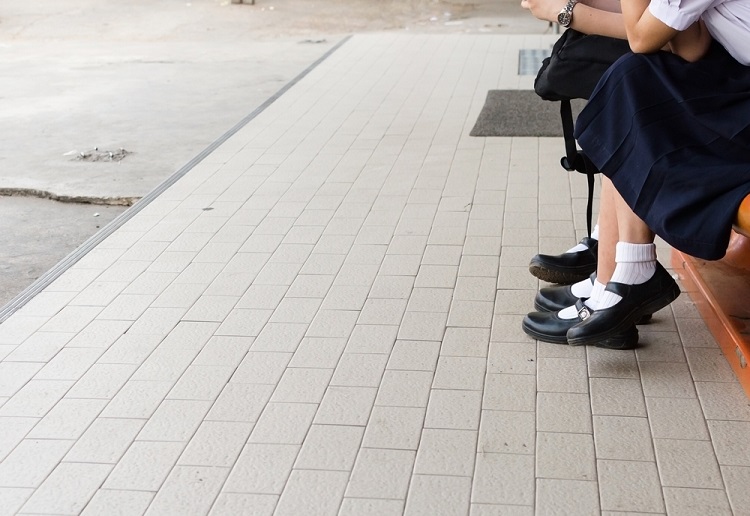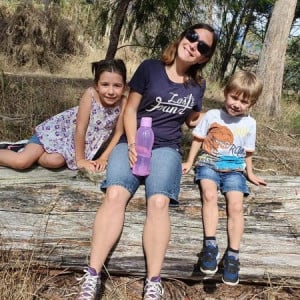Children as young as five are displaying worrying sexualised behaviour across Australian schools.
These are the findings of newly published research in the journal Sex Education which also revealed teachers find it hard to distinguish between students subject to sexual abuse and those who have adopted such trends from television and the internet, reports Daily Mail.
More than 100 teachers from government, independent and Catholic primary schools across Australia were asked regarding their experiences with children’s problematic sexual behaviours and how they dealt with the issue.
Dr Lesley-Anne Ey of University of South Australia led the study which revealed 40 per cent of teachers interviewed had witnessed problematic sexual behaviour in schools.
This included students simulating intercourse, attempting to lead other students into sexual conduct, and in one case, a 10-year-old threatened to rape other students.
Teachers had no issue reporting such behaviours but struggled with dealing with those children appropriately.
Worryingly teachers have problems identifying children in need of help from sexual abuse, as the numbers of pupils imitating sexual behaviours from music videos and adverts rises.
Dr Ey revealed teachers should have sufficient training to be able to deal with such issues.
‘If kids are acting out inappropriately, whatever the reason, it’s a problem. But the issue for many teachers is knowing how to respond to what they see,’ Dr Ey told Fairfax Media.
‘Teachers should know the questions to ask so they can recognise whether such behaviours are prompted by potentially criminal activity that a child is seeing or experiencing at home or at school, or whether the child is simply copying actions they see in increasingly sexualised music videos, advertising, and internet content.’
She also warned that schools should tread carefully with children who are now interpreting such sexual behaviours due to their surroundings.
‘We don’t want kids being treated or labelled as deviants because they are copying behaviour they understand to be normal because they see it at home or on television.’
Dr Ey said that Australian schools are educating children about how to keep themselves safe but the level of education differs between states and territories.
“Educating children about how to identify inappropriate touching, declining invitations to touch others inappropriately, saying no when they feel uncomfortable, recognising coercion or bribes, recognising inappropriate secrets and reporting any of these to an educator or trusted adult – these are imperative to empowering children to keep themselves safe,” she said.
Protecting children from sexual abuse via ACT government
Some great tips to teach our children to be aware and stay safe include,
Make time to talk
Talk about what being safe means and what it feels like
Teach children that their body is theirs
Help your child to make a list of adults they feel safe with
Have clear boundaries for personal privacy in your home so that children learn this is a normal part of life.
This includes:
•respecting a child’s ‘no’ to being touched
•not making them kiss someone if they don’t want to. They might want to shake hands instead
•giving them privacy in the toilet or shower as long as it’s safe.
Safety in public places
Teach children to avoid risks away from home, including:
•not going off alone
•being alert to what’s going on around them
•running to where you are, or to a group of people, if a stranger approaches them.
If they walk to school, make sure they:
•always walk with others
•keep close to fences and away from the road
•go into the nearest shop or front yard of a house if they are scared. If really scared, knock on the door and ask the person to call home but don’t go inside.
Signs of sexual abuse
The main message from survivors is about the importance of paying attention to children’s behaviour. If children are being sexually abused, there may be physical signs such as bleeding from the vagina or anus (back passage), sexually transmitted infections (STIs) or poor hygiene.
However, signs in a child’s behaviour are more likely. These include:
•significant changes in behaviour, aggressive behaviour or regression (going back) to an earlier stage of development (for example, bedwetting)
•sexual behaviour that is not appropriate to the child’s age
•depression or social withdrawal
•getting into trouble at school (sometimes to avoid going home)
•self-harming behaviours (for example, self-mutilation, suicide attempts or prostitution).
Where to get help
•Child Protection Service – to report child abuse. Contact your local office or the DHS Child Protection Crisis Line on Tel. 131 278
•Police – to report the abuser
•Centres Against Sexual Assault Tel. 1800 806 292 (24 hours) – for support and counselling
•National Sexual Assault and Domestic Violence hotline Tel. 1800 737 732 (24 hours) – for support
Kids Help Line – 1800 55 1800
Parent Line – 1300 30 1300
Lifeline – 13 11 14
Remember
•Children are not responsible for sexual abuse.
•Sexual abuse is a crime.
•Children often talk about the abuse a little at a time.
•It is very common for survivors to repress memories of abuse.
•Sexual abuse is experienced by girls and boys. Children cannot stop sexual abuse.
5 basic principles we need to teach our children via Bravehearts (remember: it’s never too early to sow the seeds of personal safety) are:
1) To trust their feelings and to distinguish between ‘yes’ and ‘no’ feelings
2) To say ‘no’ to adults if they feel unsafe and unsure
3) That they own their own bodies
4) That nothing is so yucky that they can’t tell someone about it
Share your comments below
Read more: Why we need to teach our kids ‘Vagina,’ ‘Penis,’ and ‘Vulva’
School toilets to be put under guard to stop sexual assaults
Shutterstock photo




















-

-
-
mom101628 said
- 09 Apr 2018
-

-
-
tessie said
- 17 Sep 2017
-

-
-
mom94125 said
- 02 Sep 2017
-

-
-
june11 said
- 15 Aug 2017
-

-
-
sars_angelchik said
- 09 Aug 2017
-

-
-
rovermum said
- 09 Aug 2017
-

-
-
ella12 said
- 08 Aug 2017
-

-
-
Ellen said
- 08 Aug 2017

-

-
-
mom101628 said
- 07 Aug 2017
-

-
-
mom90758 said
- 07 Aug 2017
-

-
-
mom112217 said
- 07 Aug 2017
-

-
-
mom206279 said
- 07 Aug 2017
-

-
-
Aida Moroccan said
- 07 Aug 2017
Post a comment10:26 pm
10:48 am
6:01 pm
10:48 pm
5:35 pm
9:18 am
11:19 am
1:16 am
9:24 pm
4:07 pm
4:02 pm
12:54 pm
12:05 pm
To post a review/comment please join us or login so we can allocate your points.